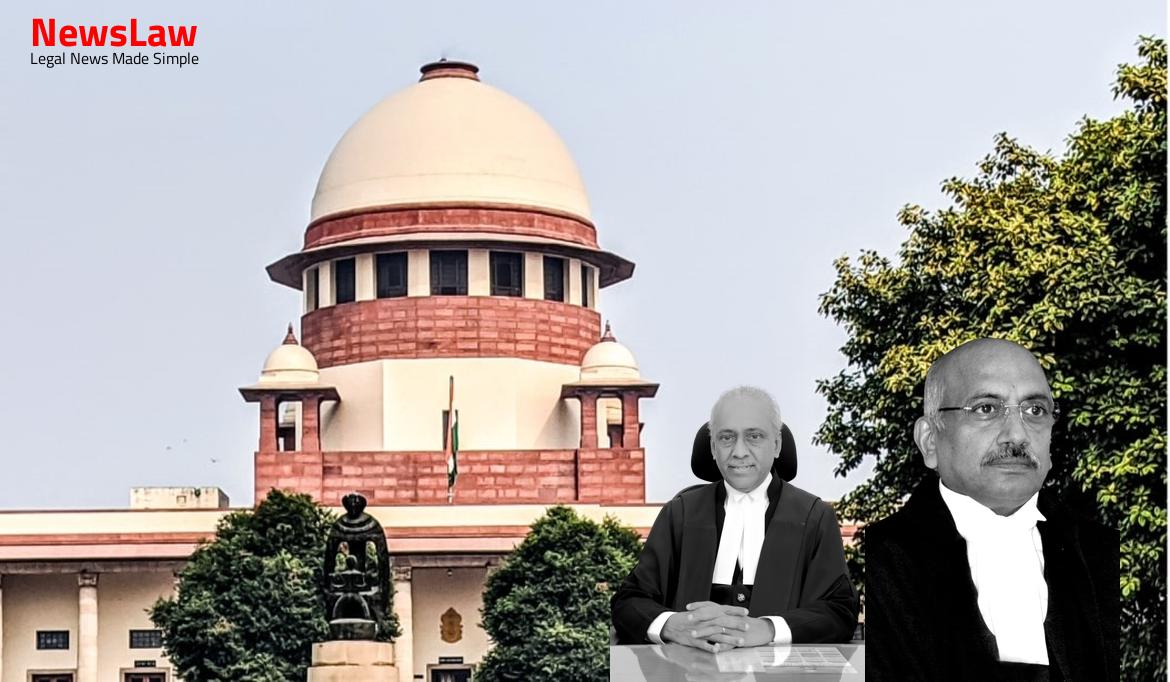7934/2011 The facts leading the present appeal in a nutshell are as under: – 2.1 From 01.04.2002 to February, 2003, the appellant – assessee, engaged in a software development business at Techno Park, Trivandrum which employed about 700 employees, deducted tax at source (TDS) in respect of salaries, contract payments, etc., totalling Rs. On 09.10.2003, the Additional Commissioner of Income Tax issued a show cause notice proposing to levy penalty under Section 271C of the amount equal to TDS. The High Court vide impugned judgment and order has dismissed the appeal preferred by the assessee by holding that failure to deduct/remit the TDS would attract penalty under Section 271C of the Act, 1961.
By the impugned common judgment and order the High Court has allowed the Revenue’s appeals relying upon its earlier judgment (which is the subject matter of Civil Appeal No 7934/2011 as above). 1
Also Read: https://newslaw.in/case-type/civil/c-a-no-001144-001146-2011/
It is further submitted by Shri Arijit Prasad, learned Senior Advocate appearing on behalf of the assessee that here is the case of late remittance of the TDS and not a case of non- deduction of TDS at all. It is submitted that Section 271C(1)(a) shall be applicable in case of non-deduction of whole or any part of the tax as required by or under the provisions of Chapter XVIIB. It is submitted that therefore, when the Parliament thought it fit to levy the penal interest on late remittance of the TDS for the belated period, there shall not be any levy of the penalty under Section 271C for belated remittance of the TDS.
” It is submitted that therefore, Section 276B talks about “fails to pay,” the words which are missing in Section 271C of the Act. 7
It is further submitted by Shri Arijit Prasad, learned Senior Advocate appearing on behalf of the assessee that even otherwise, the impugned judgment and order passed by the High Court has been subsequently overruled by the Full Bench of the Kerala High Court in the case of Lakshadweep Development Corporation Ltd. 1 Shri Balbir Singh, learned ASG appearing on behalf of the Revenue has vehemently submitted that Section 271C of the Act has been inserted in the year 1987. It is submitted that under the old provision of Chapter XXI of the Income Tax Act, no penalty was provided for failure to deduct tax at source though, this default, however, attracted prosecution under the provisions of Section 276B, which prescribed punishment for failure to deduct tax at source or after deducting failure to remit the same to the Government and therefore, Section 271C came to be inserted to provide for levy of penalty for failure to deduct tax at source.
2 The question which is also posed for the consideration of this Court is what is the meaning and scope of the words “fails to deduct” occurring in Section 271C(1)(a) and whether an assessee who caused delay in remittance of TDS deducted by him, can be said a person who “fails to deduct TDS”? Penalty for failure to deduct tax at source.
Penalty not to be imposed in certain cases.—Notwithstanding anything contained in the provisions of clause (b) of sub-section (1) of Section 271, Section 271-A 4203 [Section 271- AA], Section 271-B 4204
Also Read: https://newslaw.in/case-type/civil/acquisition-of-land-and-deemed-lapse-under-the-act-2013/
[Section 271- BA], 4205 [Section 271- BB, 4206 [Section 271-C, Section 271- CA], Section 271-D, Section 271- E, 4207 [Section 271-F,] 4208 [Section 271-FA 4209
[, 4210 Failure to pay tax to the credit of Central Government under Chapter XII-D or XVII-B.—If a person fails to pay to the credit of the Central Government,— (a) the tax deducted at source by him as required by or under the provisions of Chapter XVII-B; or (b) the tax payable by him, as required by or under,— (i) sub-section (2) of Section 115-O; or (ii) the second proviso to Section 194-B, he shall be punishable with rigorous imprisonment for a term which shall not be less than three months but which may extend to seven years and with fine.”
Therefore, Section 271C(1)(a) shall be applicable in case of a failure on the part of the concerned person/assessee to “deduct” the whole of any part of the tax as required by or under the provisions of Chapter XVIIB. As per the cardinal principle of interpretation of statute and more particularly, the penal provision, the penal provisions are required to be read as they are. 7 At this stage, it is required to be noted that wherever the Parliament wanted to have the consequences of non-payment and/or belated remittance/payment of the TDS, the Parliament/Legislature has provided the same like in Section 201(1A) and Section 276B of the Act. As observed hereinabove, fails to pay the whole or any part of the tax would be falling under Section 271C(1)(b) and the word used between 271C(1)(a) and 271C(1)(b) is “or”. Paragraph 16.5 of the above Circular reads as follows: “16.5:
Also Read: https://newslaw.in/case-type/civil/c-a-no-003481-003481-2022/
Insertion of a new section 271C to provide for levy of penalty for failure to deduct tax at source- under the old provisions of Chapter XXI of the Income Tax Act no penalty was provided for failure to deduct tax at source. If there is any omission to deduct the tax at source, it may lead to loss of Revenue and hence remedial measures have been provided by incorporating the provision to ensure that tax liability to the said extent would stand shifted to the shoulders of the party who failed to effect deduction, in the form of penalty. Even the CBDT has taken note of the fact that no penalty is envisaged under Section 271C of the Income Tax Act for non- deduction TDS and no penalty is envisaged under Section 271C for belated remittance/payment/deposit of the TDS.
Impugned judgment(s) and order(s) passed by the High Court are hereby quashed and set aside and the question of law on interpretation of Section 271C of the Income Tax Act is answered in favour of the assessee(s) and against the Revenue and it is specifically observed and held that on mere belated remitting the TDS after deducting the same by the concerned person/assessee, no penalty shall be leviable under Section 271C of the Income Tax Act.
Case Title: M/S US TECHNOLOGIES INTERNATIONAL PVT. LTD. Vs. THE COMMISSIONER OF INCOME TAX (2023 INSC 329)
Case Number: C.A. No.-007934-007934 / 2011



